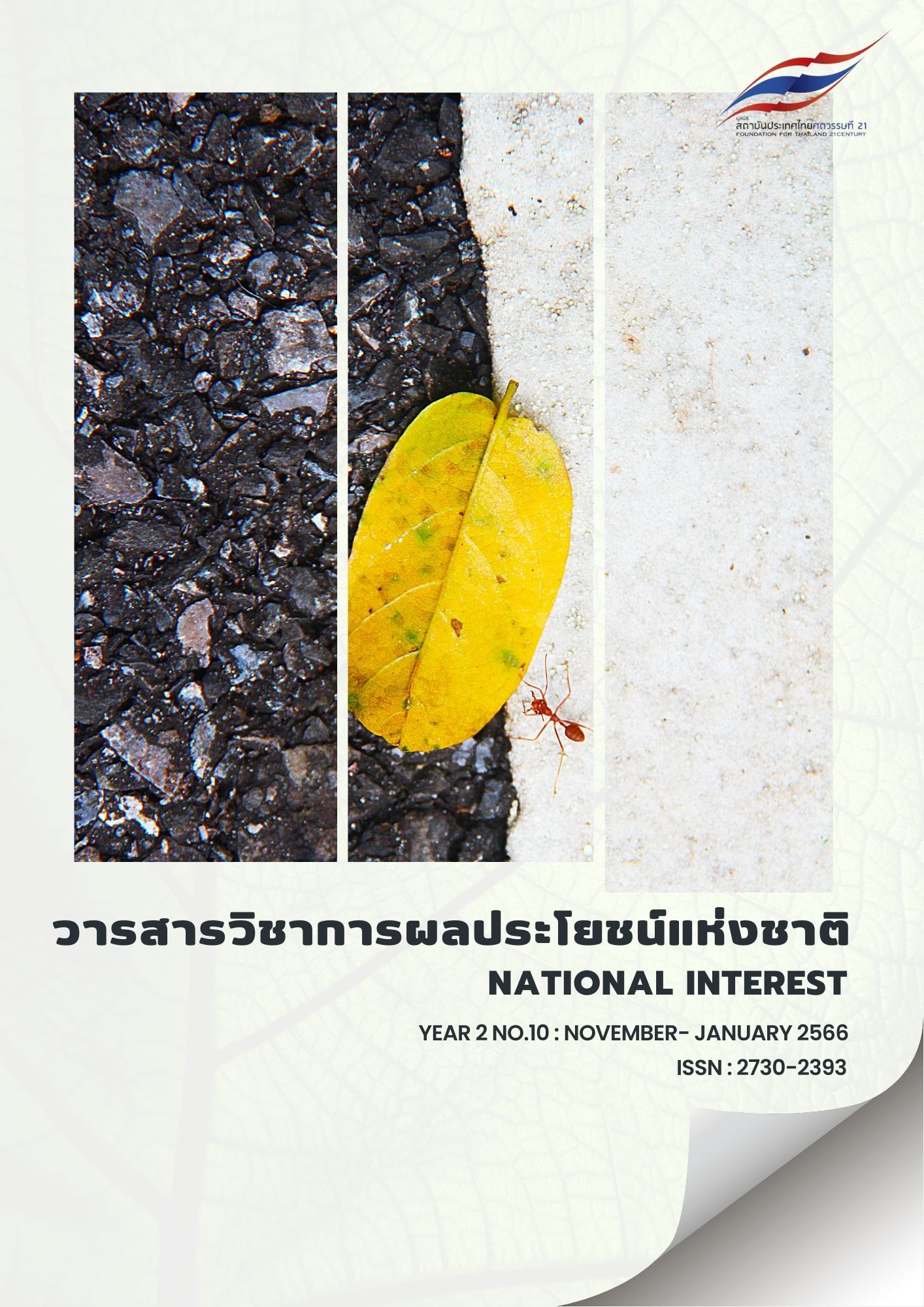How Parents Can Know If Their Child Is Gifted
Main Article Content
Abstract
Talented youth refers to children who exhibit outstanding abilities in one or more areas such as science, intelligence, creativity. language use Leadership visual arts in performing arts, in music, in sports and academic competence in any field or many branches clearly compared to children of the same age level. and in the same environment Education for young talents It is an index indicating the development trend of the country. Providing education for these youths abroad is a high return investment. The next benefit that will happen to society is the matter of rights, equality and humanitarianism. especially to further upgrade the quality of education of the country.
Role of Parents in Promoting Intellectual Children Encourage your child to do things and interesting activities Read all kinds of books. Be interested in music. Work with friends. to perform their duties to the best of their ability Parents let the school organize activities for children to express their opinions. did a group internship Practicing virtues such as sacrifice, knowing duty to the nation The house has a good environment. Help solve problems for children Let him be diligent, focused, creative. Take care of food to complete the 5 food groups. Give what your child asks because he will appreciate it. Training to be a good Buddhist give love to children in the right way Obstacles to enhancing intelligence are Not giving love and not caring about your child's feelings.
Article Details

This work is licensed under a Creative Commons Attribution-NonCommercial-NoDerivatives 4.0 International License.
Thai Journal of National Interest Academic Journal under Creative Commons Attribution-NonCommercial-NoDerivatives 4.0 International License The journal allows access or distribution of academic work without charge or registration. To support the exchange of knowledge Scope covers academic work in geopolitics. Geoeconomics and Innovation
Users can share, copy and distribute all information published in National Interest Academic Journal in any form or medium subject to the following conditions:
Citation — Permission to use, reproduce, distribute, or modify the work. But credit must be given to the owner of the work. If the work is used without credit, the name of the owner of the work will be Must obtain permission from the owner of the work first.
Noncommercial — The work may be used, reproduced, distributed, or modified. However, the work or article may not be used for commercial purposes.
Cannot be modified — The work may be used, reproduced, and distributed. But do not modify the work. unless permission is received from the owner of the work first
References
Echo H. Wu. (2012). Enrichment and Acceleration: Best Practice for the Gifted and Talented. Murray State University. Manassas. Virginia. USA.
Gardner Howard. (2005). Intelligence in eight steps. http://www.newhorizons.org/future/Creating_the_Future/crfut_gardner.html (Online).
Institute for the promotion of learning genius and innovation. (2009). Thai Children's Talent Training Camp. Office of Knowledge Management and Development. (Public Organization).
Ministry of Education. (2010) National Education Act. B.E. pr-b42-01.htm (Online). Accessed December 31, 2022.
National Association for Gifted and Talented. (2017). NAGC Awards. www.nagc.org/about-nagc/nagc-awards-scholarships (Online).
National Center for the Development of Talented Persons. (2009). A Guide to Researching the Promising Talents. Office of the National Education Commission.
National Research Center on the Gifted and Talented. (2001). 12 Traits of Giftedness. Mary Ruth Coleman. University of North Carolina www.centennialschool.net/uploads/8/5/1/1/8511722/12_traits_of_giftedness_for_gt.pdf www.moe. .go.th/main2/plan/pr-b42-01.html (Online).
Office of Education for Special Talents. (2015). Building on the child prodigy. http://www.siamedunews.com/articles/42256813 (Online).
Office of the Basic Education Commission. (2014). Sirindhorn Arts Center. http://www.thairath.co.th/content/442748. (Online).
Office of the Education Council Secretariat. (2016.) (draft) The direction framework of the National Education Plan 2017-2031. http://backoffice.onec.go.th/uploaded/Outstand/2016-EdPlan60-74.pdf (Online).
Phaka Satyatham. (2002). Raising intelligent children. Chulalongkorn University Demonstration School. Elementary Department. Faculty of Education. Chulalongkorn University.
Saurat Phatthitinan (2009). Gifted Children's Characteristics. Project to fulfill the potential of students with special abilities. Educational Research and Development Center. Agricultural Demonstration School of Kasetsart University. http://gifted.kus.ku.ac.th/?page_id=41 (Online).
Susan Pass. (2004). Parallel Paths to Constructivism: Jean Piaget and Lev Vygotsky. Information Age Publishing.
Special Education Research and Development Institute. (2012). Enrichment Program. Genius Development Center Special Education Research and Development Institute Srinakharinwirot University.
Tasanai Kovithitakorn. (2008). Teaching children with special abilities. Faculty of Education. Suan Dusit Rajabhat University.
Usanee Anurutwong. (2008). Education for intelligent children. www.moe.go.th/moe/th/news/detail.php?NewsID=4667&Key=hotnews (Online).


